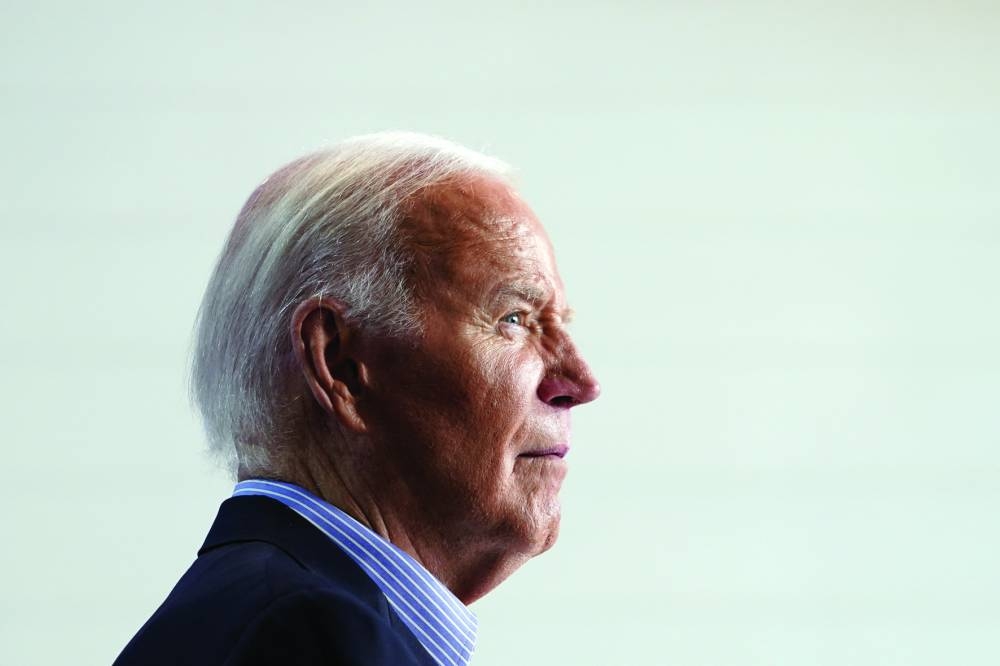Joe Biden’s withdrawal from the 2024 US presidential race remains one of the biggest stories of the year. Criticised for his June debate performance and showing clear signs of ageing, the 81-year-old president finally acknowledged what the polls were showing and handed the reins to his vice-president, Kamala Harris, who is 59. Suddenly, the 78-year-old Republican nominee, Donald Trump, has gone from being the slightly younger candidate to the much older one.
While the US does not have age limits for elected politicians, perhaps it should. The US Foreign Service requires its officers to retire by age 65, and the US military imposes retirement on flag officers at age 64, though higher-ranked generals can have their retirement deferred until 68 by the president. These age limits guarantee that those who command America’s soldiers and weapons are also in full command of their faculties. Trusted to make sharp, clear-headed decisions in the face of physically and mentally demanding situations, they cannot falter like Biden did on the debate stage.
Surely these standards should be even higher for the men and women with the most power. Yet neither the president nor any of the officials who would step into that role (the vice president, the speaker of the House of Representatives, the president pro tempore of the Senate, and so forth) face any such requirements.
Around one-third of the elected officials who control the world’s largest economy and military – 35 of the 100 US senators, and 91 of the 435 members of the House – are well past what is allowable for the country’s most senior military leadership; and the same goes for the US Supreme Court, where three of the nine justices – the ultimate arbiters of US law – are 70 or older. By contrast, only 28 Fortune 500 CEOs are 70 or older.
The usual argument for allowing aged statesmen to lead is that they have the most experience. But even if one views this as an asset, its value must be weighed against all the risks that come with age – from physical ailments such as strokes and fractures to cognitive decline. Older minds may be better at putting together disparate pieces of information and interpreting the “big picture,” but it is unclear whether this capacity endures well into one’s 70s and 80s.
Another argument is that America’s increasingly aged leadership merely reflects an ageing electorate. With around 30% of US voters in 2022 over 65, we could simply be witnessing democracy at work. But the data show no obvious relationship between the age of an elected official and the age of his or her voters. The oldest elected officials do not hail from the oldest states.
Consider Senator Dianne Feinstein, who held onto office for years despite her poor health before passing away at age 90, just months after she finally retired. Her state, California, has the tenth lowest share of voters aged 65 or older. Of the ten US states with the smallest share of over-65 voters, seven have one or more senators over age 70.
A more likely reason for America’s ageing leaders is that the rules have become outdated as lifespans have lengthened. There are no age restrictions for Supreme Court justices, and the US Constitution only set minimum ages for presidents, senators, and representatives: 35, 30, and 25, respectively.
The absence of mandatory retirement ages for elected and appointed federal officials reflected a world in which most people did not live long enough to experience dementia, and where few could hope to survive a heart attack or a severe bone fracture. Old age was not a problem on the minds of our 18th-, 19th-, and early 20th-century predecessors. But life expectancy for those who reach age five has increased by more than 20 years since the Constitution was drafted, and functional deterioration comes with ageing.
Elected officials clinging to office well into old age is not the result of democracy at work. On the contrary, according to Freedom House, elder statesmen are more likely to lead less democratic countries. In the US, many continue to hold power because incumbency confers an electoral advantage, particularly in the Senate. The recent experiences with Feinstein and Biden highlight the dearth of formal and informal mechanisms to push out a sitting leader.
Polling from last year indicates that 79% of Americans would favour a maximum age for elected officials in Washington, and 74% would support one for Supreme Court justices. Half of Americans would prefer a president in his or her 50s, and while older Americans prefer older presidents, only 5% of respondents aged 70 or older want a president their own age.
Legend has it that when the first US president, George Washington, was six years old, he chopped down a cherry tree and could not lie when confronted about it. It’s a charming fable, but Americans should focus on a more important fact about Washington: he refused to seek a third term, which he would have won handily, because he knew that it was time to step aside. – Project Syndicate
- Nancy Qian, Professor of Economics at Northwestern University, is Co-Director of Northwestern University’s Global Poverty Research Lab and Founding Director of China Econ Lab.

